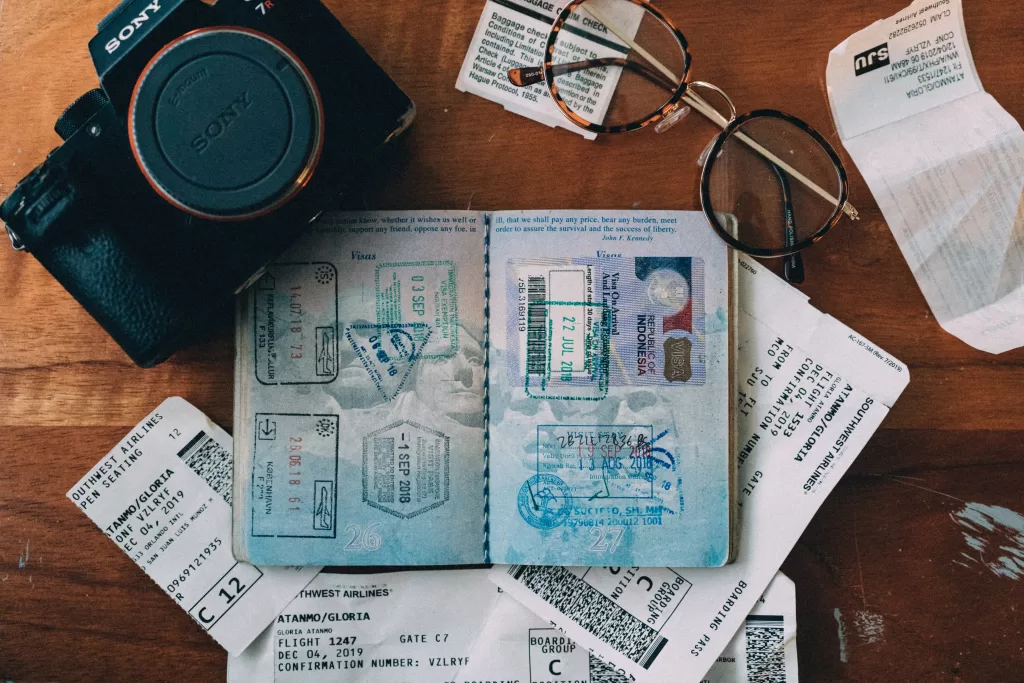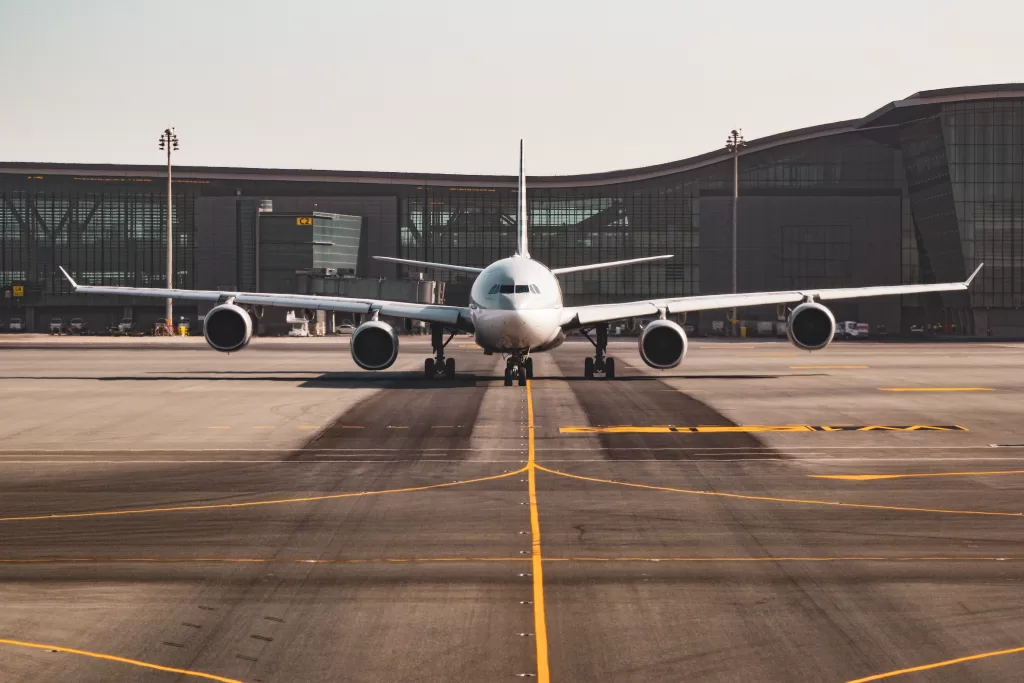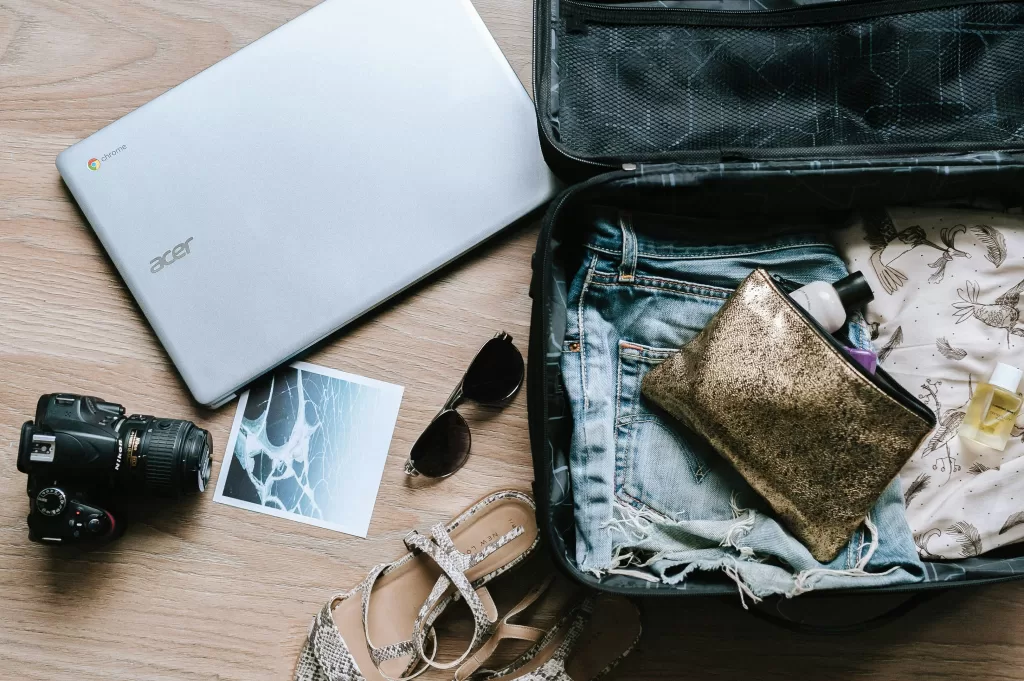Travel planning and logistics can be daunting, especially for those who are new to this lifestyle. In this article, we’ll provide you with helpful tips and tricks to make travel planning and logistics as smooth and stress-free as possible, so you can focus on enjoying the adventure of being a nomad over 50.
Table of Contents
As we age, our perspective on life changes and many of us begin to feel a strong desire to explore the world, have road trips, and experience new cultures. The idea of being a nomad, traveling from place to place without a permanent home, is becoming increasingly popular among those over 50. Whether it’s to fulfill a lifelong dream, escape the monotony of daily life, or simply explore new horizons, the benefits of being a nomad are undeniable.
Factors to consider before planning a trip
Before embarking on a journey, there are several important factors to consider, especially for those over 50. First and foremost is health. It’s important to check with a doctor to ensure that you are physically fit to travel, and to get any necessary vaccinations. Travel insurance is also essential, to ensure that you are covered in case of unexpected health issues or emergencies.
Another important factor is budget. Traveling as a nomad can be expensive, so it’s important to plan your budget carefully, taking into account the cost of living and travel expenses in your chosen destination. Technology is another consideration, as staying connected with friends and family is important for many nomads. Finally, social considerations such as maintaining relationships with loved ones back home should also be taken into account. So, buckle up and get ready to hit the road!
Travel Planning 101
Traveling can be an incredible experience that broadens your horizons and enriches your life in countless ways. However, it can also be overwhelming, especially if you’re a first-time traveler or are venturing into unfamiliar territory. That’s where Travel Planning 101 comes in – this guide is designed to provide you with the basic knowledge and skills you need to plan and enjoy your trip with confidence. So, buckle up and get ready to hit the road!
Ready for an amazing journey? Discover the joys of slow travel, find affordable stays, and tackle visa requirements with the help of handy tools like a travel app, travel planner, or trip planner. Utilize tools like Google Maps to streamline your trip plan, and consolidate all information in one place. Don’t forget to explore the wonders of national parks along the way, some of which may offer free travel experiences. Enhance your experience with a reliable planner app—read reviews on app stores to find the perfect one for your journey!
Whether you’re a Nomad After 50 or an ex-pat, travel planning and logistics, with the assistance of travel guides, are key to a smooth and enjoyable adventure abroad. Let’s kick off our adventure!
How to Pick Your Destination

Choosing the right destination is crucial for a successful nomadic journey, especially for those over 50. When choosing a destination, it’s important to consider factors such as climate, culture, safety, and accessibility. Destinations with mild climates and good healthcare systems are generally better options for older travelers. Culture and safety are also important considerations, as some destinations may be more welcoming to foreigners or safer for travelers than others.
Additionally, accessibility and thoughtful travel planning are important to consider, as older travelers may have difficulty navigating areas with steep terrain or limited infrastructure. Some popular destinations for nomads over 50 include Southeast Asia, Europe, and South America, but ultimately the destination you choose will depend on your interests and preferences.
For destination search, the United States Department of State website is an important resource for American travelers. The website contains a wealth of information about U.S. foreign relations, including travel advisories, visa information, and country-specific guides. Additionally, the website provides resources for U.S. citizens living or traveling abroad, including information about emergency services, passport and visa services, and travel safety. Don’t forget to check the website’s International Travel section.
Pre-trip planning
Pre-trip planning and logistics are essential for a smooth and stress-free journey as a nomad over 50. First, check the visa requirements of your destination. Next, strategic travel planning comes into play—plan your transportation ahead of time, including flights, trains, or buses to get to your destination. It’s also crucial to plan for accommodations, whether booking a hotel, hostel, or short-term rental.
Visa Requirements

Familiarize yourself with visa requirements for extended stays in your chosen country, considering factors such as application processes, duration, and any stipulations or restrictions. Also, ensure that you have a valid passport that will not expire within six months of your planned departure date.
For example, as of 2021, American citizens do not need a visa for stays in Europe of up to 90 days within 180 days for tourism or business purposes. This is due to the Visa Waiver Program (VWP), which allows citizens of certain countries, including the United States, to travel to Europe without a visa for short stays.
Also, American citizens can travel to many countries in Central & South America without a visa for tourism or business stays of up to 90 days. These countries include Argentina, Brazil, Chile, Colombia, Ecuador, Paraguay, Peru, Uruguay, Belize, Costa Rica, El Salvador, Guatemala, Honduras, Nicaragua, and Panama.
American citizens do not need a visa to travel to Canada or Mexico for stays of up to 180 days for tourism or business purposes. Canada requires American citizens to have a valid passport and may require additional documentation, such as a visa or an Electronic Travel Authorization (eTA) for some travelers. Mexico does not require a visa or eTA, but travelers may be asked to provide proof of return or onward travel, as well as sufficient funds to support their stay.
It’s important to note that these stay limits can change over time, and as part of thorough travel planning, you should always check the latest entry requirements before your trip. Additionally, some countries may require a visa for longer stays or certain types of travel, such as employment or study.
Accommodations
Finding the right accommodations is a crucial part of travel planning. Fortunately, there are many options available for us, including hotels, hostels, and short-term rentals. Let’s dive into it.
Hotels and Extended Stays are popular choices for those who prefer a more traditional travel experience with amenities such as room service and housekeeping. You can use websites such as Booking.com, Expedia, Travelocity, or Hotels.com to search for hotels and extended stay options. These websites allow you to filter your search results based on your preferences such as price, location, amenities, and guest ratings. My suggestion is to search for the “top hotel booking websites in (destination name)” to potentially discover better prices on the website specific to that country. Additionally, I utilize a VPN while exploring options for short-term accommodations.

Hotels
Hostels are a great option for budget-conscious travelers who, as part of strategic travel planning, don’t mind sharing a room with other guests and are looking for a more social experience. I can hear you saying that hostels are for youngsters but don’t forget many hostels offer private rooms in addition to shared dormitories, which may be more comfortable and appealing to mature travelers.
Hostels
Many hostels are located in prime locations, such as city centers or near popular tourist attractions, making it easy for mature travelers to explore the area without having to travel far. Hostelworld is a great resource for booking hostels around the world, they have over 17,000 hostels in more than 179 countries and offer a wide range of accommodations to fit any budget.
Short-term Rentals
Here is my favorite: Short-term rentals such as apartments or vacation homes. These can offer more space and privacy for families or groups and may be a better value for longer stays. When choosing accommodations, it’s important to consider factors such as location, price, amenities, and safety. Online booking platforms such as Airbnb, VRBO, and Booking.com make it easy to compare options and find the right accommodations to suit your needs and budget.
If you plan on staying in the destination for longer than three months, my suggestion would be to get in touch with local agents. These agents can be located through Facebook groups, InterNations forums, and even Meetups. However, it is important to exercise caution and verify the legitimacy of the source before making any payments or signing documents.
Transportation

After selecting your desired location, confirming visa requirements, and securing accommodations, the next step in travel planning is organizing transportation. One important aspect of travel planning is transportation, which includes flights, trains, and buses. When planning your transportation, it’s important to consider factors such as cost, travel time, and convenience. Flights are a popular choice for long-distance travel, and websites such as Kayak, Agoda, and Cheap Flights can help travelers compare prices and find the best deals. I always start my search on Google Flights plus use Android applications like Hopper, and Skyscanner.
Trains are a great option for travel within Europe and Asia, and sites like Rail Europe, OBB NightJet, and Trainline offer easy booking and ticketing options. Buses are a budget-friendly alternative for short to medium-distance travel, and companies such as Greyhound and Megabus offer comfortable and affordable travel options within the United States and Canada. When planning transportation, you should also consider factors such as baggage restrictions, layovers, and travel insurance to ensure a hassle-free experience. By planning transportation ahead of time and using online resources, you can find the best deals and enjoy a smooth and comfortable journey to your destination.
Insurance
Travel insurance, a key component of thoughtful travel planning, is an important consideration for any traveler, as it can provide valuable protection and peace of mind during your trip. Purchasing travel insurance can help you recover costs in the event of unforeseen circumstances, such as trip cancellations, medical emergencies, or lost or stolen baggage. Without insurance, travelers may be responsible for these expenses, which can be costly and disruptive to their travel plans.
Additionally, travel insurance can provide valuable assistance in the event of an emergency, such as providing access to medical care or emergency transportation. By purchasing travel insurance, travelers can travel with greater confidence, knowing that they are protected in case of unexpected events.

Many credit card companies, recognizing the importance of travel planning, provide travel insurance as a benefit for their cardholders. As a travel planning pro, leverage this offering for added protection and peace of mind during your journeys. This can be a convenient and cost-effective way to obtain coverage for your trip. However, it’s important to carefully review the terms and limitations of the insurance provided by your credit card company, as coverage can vary significantly between different cards and issuers. Some credit cards may only offer limited coverage or require that certain conditions be met to qualify for coverage.
Additionally, credit card insurance may not cover all of the same situations as a standalone travel insurance policy, such as trip cancellation or emergency medical evacuation. Before relying on credit card travel insurance, it’s important to carefully review the terms and coverage offered, and consider whether additional insurance may be needed to fully protect your trip. You can also check Allianz Travel and AAA.
Packing
When it comes to packing for a trip, it’s important to strike a balance between bringing everything you need and keeping your luggage manageable. For nomads over 50, this can be especially important, as you may have specific needs or requirements when traveling. When packing, it’s a good idea to start with the essentials, such as clothing and toiletries. Consider the weather and activities you have planned, and pack clothing that can be mixed and matched to create a variety of outfits.

Other important items to include may include medications, travel documents, and any necessary technology or equipment, such as chargers or adapters. For those traveling for longer periods, packing cubes or compression bags can help to maximize space in your luggage. It’s also a good idea to pack a small bag or pouch with items that you may need during travel, such as a neck pillow, eye mask, or snacks. By carefully planning and packing for your trip, you can ensure that you have everything you need while keeping your luggage manageable and easy to transport.
Other things to consider
In addition to the essentials of packing and arranging transportation, there are several other important logistics to consider when planning a trip as a nomad over 50. One important consideration is researching the local customs and cultural norms of your destination. This can be especially important if you are traveling to a country or region with a significantly different culture than your own. By understanding the customs and expectations of the local people, you can avoid any unintended cultural misunderstandings or faux pas. This can also help you to better connect with the local community and gain a deeper appreciation for the culture and way of life in the places you visit.

Another important consideration when planning a trip as a nomad over 50 is researching any safety concerns or potential scams to be aware of. This can include things like petty theft, tourist-targeted scams, or political instability in the region. By researching these issues before your trip, you can take steps to mitigate any risks and avoid potentially dangerous situations. This might include staying in a safer area of the city, avoiding large crowds or protests, or being vigilant about protecting your belongings.
By taking care of these logistics before embarking on your journey, you can feel more confident and prepared for any surprises that may arise. This can help you to relax and fully enjoy your travels as a nomad over 50, immersing yourself in the local culture and making meaningful connections with people along the way.
Conclusion
In conclusion, travel planning and logistics are important considerations for any traveler, especially for nomads over 50 who may have specific needs and preferences. By taking the time to research visa requirements, accommodations, transportation, local customs, and safety concerns, you can better prepare for your trip and feel more confident and comfortable during your travels. Additionally, packing carefully and considering essential items can help ensure that you have everything you need while keeping your luggage manageable. Whether you’re planning a short-term trip or embarking on a long-term nomadic journey, careful planning and attention to logistics can help make your travels more enjoyable and fulfilling.
As you plan your travel adventures, what logistics do you find most important to consider? Do you have any tips or strategies for making travel planning and logistics easier and more effective? Share your thoughts and experiences in the comments below!
Don’t forget to check Why Portugal is the New Hotspot For American Expats and Why Turkiye is the NEW Retirement Hotspot You Need To Know About
FAQ
How far in advance should I start planning my trip?
Ideally, you should start planning your trip 3-6 months in advance, as this allows enough time to research destinations, compare prices, and secure accommodation and transportation. However, if you’re flexible with your travel plans, last-minute trips can also be a great option.
What factors should I consider when choosing a travel destination?
When choosing a travel destination, consider factors such as budget, climate, safety, visa requirements, language barriers, and personal interests. This will help you find a destination that meets your needs and preferences.
How do I create a travel itinerary?
Start by researching the top attractions and activities in your chosen destination. Then, create a rough timeline that includes the length of your trip and the days you want to allocate for each activity. Once you have a basic outline, refine your itinerary by adding specific details such as transportation, accommodation, and meal arrangements.
What is the best way to book flights?
Use a combination of search engines, airline websites, and booking platforms to find the best deals on flights. Be flexible with your travel dates and times, as this can often result in lower prices. Additionally, consider booking flights with layovers or flying to nearby airports to save money.
How can I save money on accommodation?
To save money on accommodation, consider staying in budget hotels, hostels, or using vacation rental platforms. Booking your stay in advance, traveling during the off-season, and opting for accommodations slightly away from popular tourist areas can also help reduce costs.
How do I manage my budget while traveling?
Create a daily budget that includes estimates for accommodation, meals, transportation, attractions, and miscellaneous expenses. Track your spending throughout your trip to ensure you stay within your budget. Additionally, look for ways to save money, such as using public transportation, eating at local restaurants, and taking advantage of free activities.
What travel documents do I need for international travel?
For international travel, you will need a valid passport, visa (if required), and any other necessary documentation, such as vaccination records or proof of onward travel. Make sure to research the specific requirements for your destination well in advance to avoid any issues during your trip.
How can I stay safe while traveling?
To stay safe while traveling, research the safety situation in your destination, register your trip with your government’s travel advisory service, and follow local laws and customs. Additionally, keep your personal belongings secure, avoid traveling alone at night, and be cautious when using public Wi-Fi.
What should I pack for my trip?
When packing for your trip, consider factors such as your destination’s climate, the length of your stay, and your planned activities. Essentials include clothing, toiletries, medications, travel documents, and electronic devices. To avoid over-packing, create a packing list and stick to it.
How do I handle travel insurance?
Choose a travel insurance policy that covers medical expenses, trip cancellation or interruption, baggage loss or delay, and any specific activities you plan on participating in during your trip. Compare different providers and plans to find the best coverage for your needs. Ensure you understand the policy’s terms and conditions before purchasing.
